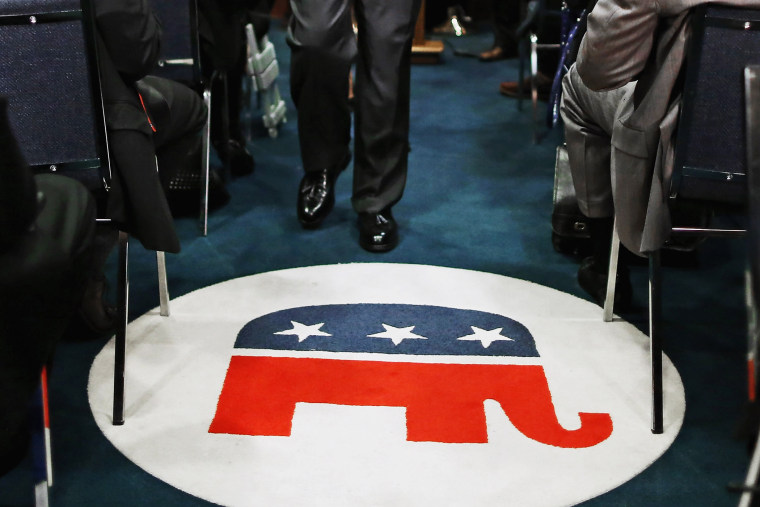The top-line results of the new
CBS News poll may look vaguely encouraging for Republicans -- Donald Trump's deficit against Hillary Clinton is modest -- but the closer one looks, the worse things appear for the GOP and its unpopular candidate.
With the presidential primary season now officially at a close, Hillary Clinton (43 percent) holds a six-point lead over Donald Trump (37 percent) - the same margin she led Trump by a month ago. Most of the interviewing for the poll was conducted before the mass shooting in Orlando, Florida Sunday. When former New Mexico Governor and current Libertarian candidate Gary Johnson is added to the contest, he garners 11 percent of the vote, but the margin between Clinton and Trump changes little. With Johnson's name added, Clinton holds a seven-point lead nationally over Donald Trump, 39 percent to 32 percent.
In this case, Clinton's lead matters, but it's Trump's support that probably matters more. In a head-to-head contest, this poll shows him drawing a meager 37% of the vote. The latest polling from Bloomberg Politics and Fox News also showed his support below 40%.
Not to put too fine a point on this, but that's not at all where a presumptive major-party nominee wants to be after wrapping up the primaries and starting the general election. Indeed, in this CBS News poll, it appears Clinton is still struggling to consolidate Democratic support, but she's maintaining a lead because of Trump's limited national appeal.
National Review added yesterday, "How unusual is it for a presumptive nominee to be polling below 40%? In the last three elections, unheard-of in the polling average, and rare even in individual polls:" In 2012, Mitt Romney "never polled below 41.5%"; John McCain never dipped below 40% in 2008; and in 2004, George W. Bush "never polled below 42.7%."
As of this morning, polling averages put Trump's national support at
38.3%.
The broader question, of course, isn't just what this means for the Republican candidate, but also his party. Bloomberg Politics added
this report late yesterday pointing to its latest polling:
Just 32 percent of Americans view the Republican Party favorably as it prepares to formally nominate Donald Trump for president, the latest Bloomberg Politics national poll shows, the lowest level recorded since the poll's inception in September 2009. [...] "This is obviously related to perceptions of Trump," said pollster J. Ann Selzer, who oversaw the survey. "This bleeds out into perceptions of the party and to other GOP politicians."
The same poll showed 49% of the public with a favorable opinion of the Democratic Party.
Senate Majority Leader Mitch McConnell (R-Ky.)
told NPR two weeks ago, "I think the Republican Party is at an all-time high."
There's some pretty striking evidence to the contrary.
